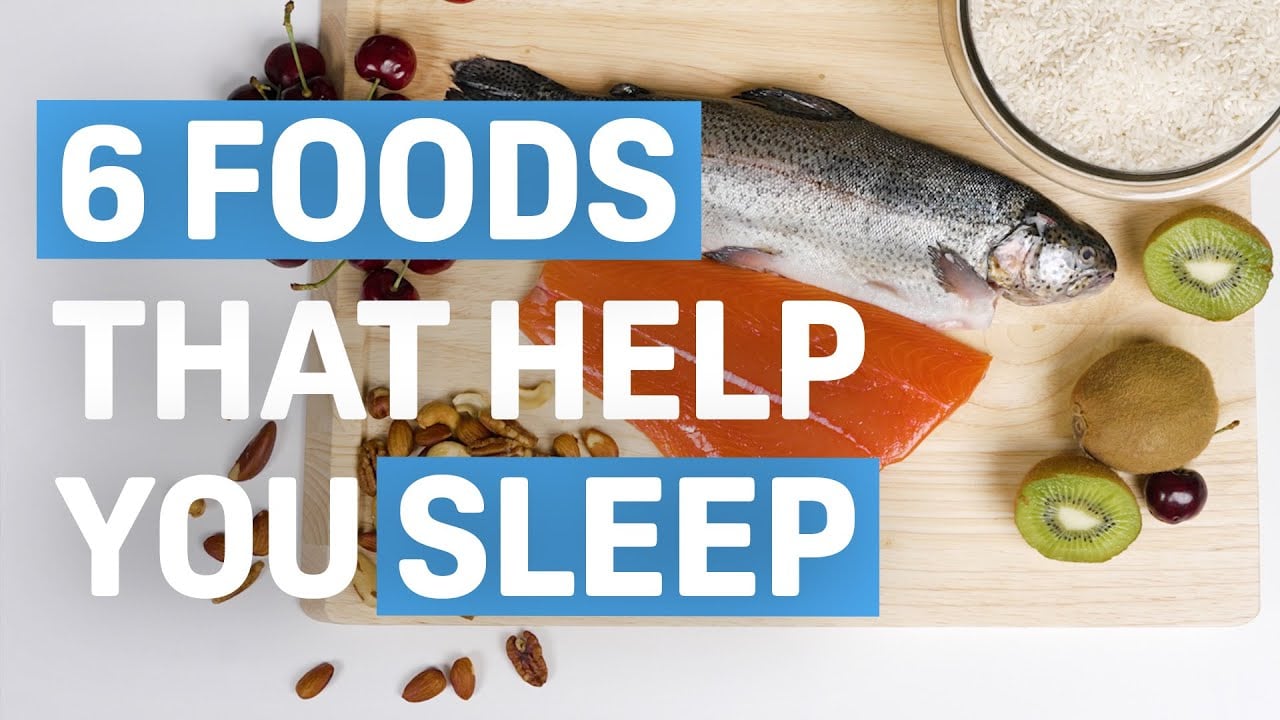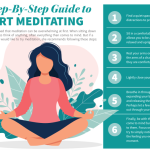Have you ever found yourself tossing and turning in bed, unable to fall asleep no matter how tired you are? Insomnia can be a frustrating and debilitating condition that affects many people. While there are various factors that can contribute to insomnia, one often overlooked aspect is the impact of our diet. Can certain foods or beverages worsen insomnia symptoms? In this article, we will explore the connection between what we consume and our ability to get a good night’s sleep.
When it comes to sleep, we often hear about the importance of establishing a bedtime routine, avoiding stimulating activities before bed, and creating a calm and relaxing sleep environment. However, what we put into our bodies can also play a significant role in our sleep quality. Certain foods and beverages have been linked to exacerbating insomnia symptoms, making it even more challenging to achieve restful sleep. By understanding the impact of our dietary choices, we can make informed decisions to improve our sleep hygiene and overall well-being. So, let’s dive in and explore how what we eat and drink can affect our sleep patterns.
Can Certain Foods or Beverages Worsen Insomnia Symptoms?
Insomnia is a common sleep disorder that affects millions of people worldwide. It is characterized by difficulty falling asleep, staying asleep, or getting restful sleep. While there are various factors that can contribute to insomnia, including stress, anxiety, and certain medical conditions, many people wonder if their diet plays a role in exacerbating their symptoms. In this article, we will explore the connection between certain foods or beverages and insomnia symptoms.
The Impact of Caffeine
Caffeine is a stimulant found in coffee, tea, energy drinks, and chocolate. It is well-known for its ability to increase alertness and energy levels. However, consuming caffeine too close to bedtime can interfere with sleep. Caffeine blocks adenosine receptors in the brain, preventing the natural sleep-inducing process. Even if you fall asleep after consuming caffeine, the quality of your sleep may be compromised. It is recommended to limit or avoid caffeine intake at least 6 hours before bedtime to minimize its impact on sleep.
Additionally, it’s important to consider hidden sources of caffeine, such as certain medications and soft drinks. Be mindful of your overall caffeine consumption throughout the day to promote better sleep.
The Role of Alcohol
Alcohol is often used as a sleep aid by some individuals, as it can initially induce drowsiness. However, while it may help you fall asleep faster, it can disrupt the overall sleep cycle. Alcohol acts as a sedative, affecting the quality of your sleep by suppressing REM sleep, which is essential for restorative rest. This can lead to more frequent awakenings during the night and a feeling of grogginess upon waking.
If you struggle with insomnia, it is best to avoid alcohol before bedtime. Instead, opt for non-alcoholic beverages that promote relaxation, such as herbal teas or warm milk.
Trigger Foods to Avoid
Certain foods have been linked to increased insomnia symptoms and should be consumed in moderation or avoided altogether:
- Sugary and Spicy Foods: Consuming large amounts of sugary or spicy foods close to bedtime can cause indigestion, heartburn, and discomfort, making it difficult to fall asleep and stay asleep.
- High-Fat Foods: Foods high in fat take longer to digest, which can lead to discomfort and disrupted sleep. Opt for lighter meals in the evenings to promote better sleep quality.
- Processed and Fast Foods: These types of foods are often high in additives, preservatives, and artificial ingredients, which can interfere with sleep. Instead, choose whole, unprocessed foods that are rich in nutrients.
By avoiding or minimizing the consumption of trigger foods, you can help improve your sleep quality and reduce the likelihood of insomnia symptoms.
The Importance of a Balanced Diet
While certain foods and beverages can worsen insomnia symptoms, it’s essential to focus on maintaining a balanced diet overall. A well-rounded diet that includes a variety of fruits, vegetables, whole grains, lean proteins, and healthy fats provides essential nutrients for optimal sleep and overall health.
In addition to a balanced diet, establishing a consistent sleep schedule, practicing good sleep hygiene, and managing stress levels are also crucial for promoting healthy sleep patterns. If you continue to experience persistent insomnia symptoms, it is recommended to consult with a healthcare professional for further evaluation and guidance.
Key Takeaways: Can certain foods or beverages worsen insomnia symptoms?
- Avoid consuming caffeine-containing foods and beverages, such as coffee, tea, and chocolate, especially close to bedtime.
- Limit intake of alcohol, as it can disrupt sleep patterns and lead to insomnia symptoms.
- Spicy and fatty foods can cause indigestion and discomfort, making it harder to fall asleep and stay asleep.
- Sugary foods and drinks can lead to energy spikes and crashes, affecting sleep quality.
- It’s important to maintain a balanced diet and avoid eating large meals before bedtime to promote better sleep.
Frequently Asked Questions
Can caffeine worsen insomnia symptoms?
Yes, consuming caffeine, particularly close to bedtime, can worsen insomnia symptoms. Caffeine is a stimulant that can interfere with your ability to fall asleep and stay asleep. It works by blocking the effects of adenosine, a neurotransmitter that promotes sleep. As a result, caffeine can keep you awake and alert, making it difficult for you to wind down and relax before bed.
It is recommended to limit or avoid caffeine intake, especially in the evening. Be mindful of not only coffee but also other sources of caffeine, such as tea, soda, energy drinks, and chocolate. If you are sensitive to caffeine, it may be beneficial to cut back or eliminate it from your diet to improve your sleep quality.
Do spicy foods worsen insomnia symptoms?
Spicy foods may exacerbate insomnia symptoms for some individuals. Spices like chili peppers, hot sauce, and curry can increase body temperature and stimulate digestion, which can interfere with sleep. Additionally, these foods may cause heartburn or indigestion, leading to discomfort and difficulty falling asleep.
If you notice that spicy foods affect your sleep, it is advisable to avoid consuming them close to bedtime. Opt for milder flavors and lighter meals in the evening to promote better sleep hygiene.
Can alcohol worsen insomnia symptoms?
Although alcohol can initially make you feel drowsy and help you fall asleep faster, it can ultimately worsen insomnia symptoms. Alcohol disrupts the sleep cycle by interfering with the production of adenosine, a chemical that promotes deep sleep. As a result, you may experience fragmented sleep, waking up frequently throughout the night.
If you struggle with insomnia, it is advisable to limit alcohol consumption, especially in the hours leading up to bedtime. Creating a consistent bedtime routine and practicing relaxation techniques can be more effective in promoting restful sleep.
Does eating heavy meals before bed worsen insomnia symptoms?
Eating heavy meals before bed can worsen insomnia symptoms for some individuals. Digesting a large meal requires energy, which can interfere with the body’s ability to relax and prepare for sleep. Additionally, lying down after a heavy meal may cause discomfort, heartburn, or indigestion, making it difficult to fall asleep.
It is recommended to have your last meal or snack at least a few hours before bedtime. Opt for lighter, easily digestible options to support a better night’s sleep. If you find yourself hungry close to bedtime, choose a small, healthy snack that won’t disrupt your sleep.
Do sugary foods and beverages worsen insomnia symptoms?
Consuming sugary foods and beverages close to bedtime can worsen insomnia symptoms for some individuals. Sugary foods can cause blood sugar spikes and crashes, leading to fluctuations in energy levels that can disrupt sleep. Additionally, sugary drinks like soda or juice may cause you to wake up during the night to use the bathroom.
To support better sleep, it is recommended to limit your intake of sugary foods and beverages, especially in the evening. Opt for healthier alternatives like fruit or herbal tea to satisfy your sweet cravings without negatively impacting your sleep.
Foods to eat for a better night’s sleep
Final Thoughts:
In conclusion, it’s clear that certain foods and beverages can indeed worsen insomnia symptoms. While there may not be a one-size-fits-all answer to which specific items are problematic, it’s important to pay attention to your own body’s reactions and make adjustments accordingly.
When it comes to improving sleep quality and managing insomnia, it’s essential to prioritize a healthy diet and lifestyle. Avoiding stimulants like caffeine and alcohol, especially close to bedtime, can greatly improve your chances of getting a good night’s sleep. Additionally, consuming foods rich in sleep-promoting nutrients such as magnesium, tryptophan, and melatonin can have a positive impact on your sleep patterns.
Remember, everyone’s body is unique, so it’s crucial to listen to your own needs and make choices that work best for you. By being mindful of the foods and beverages you consume, you can take a proactive approach to managing insomnia symptoms and improving the quality of your sleep. Sweet dreams!




